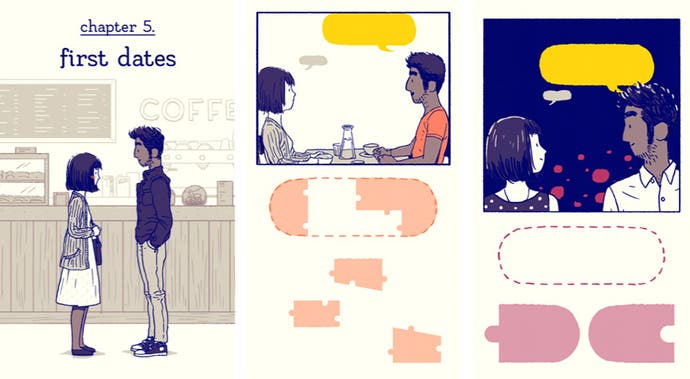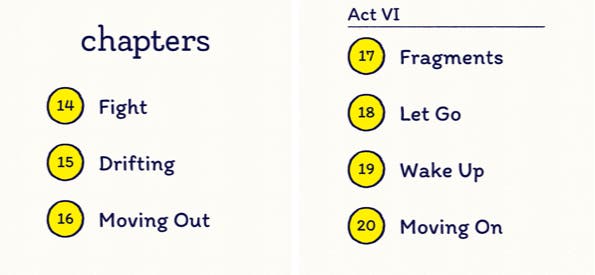On Florence and the death of a romance
Bury that horse in the ground.
There are two halves to a breakup. Halves, but not entirely. More like two different pieces - think a broken vase. The vase cracks, then it breaks apart, forming halves that you can't just slot back in place, because of the tiny bits you can't see which are lost forever. I guess what I'm trying to say is that breakups are a two-player game, one with asymmetrical roles.
You see, almost exclusively, the conclusion to breakup isn't reached collaboratively. One person will always be more ready. Ready to collect themselves before the fact. To rehearse their lines. For the other, the end of a relationship can hit with the force of a runaway train. There's no time to think, to get out of the way. Your life is one thing and then, suddenly, it's different.
The confusion is the thing, I think. The bit that most people struggle with. Humans are rational beings. We need a reason. A reason helps us to file grief away. This happened because of this, and so next time I won't do that.
I played Florence in February last year, really just a few short months after my relationship with my wife and partner of nine years ended. I was the breakuppee. At the time I was angry, I was hurt, but really, mostly, I was confused. I felt like I needed some kind of official reason which never came.
Florence tells the story of a relationship - the entire story, starting right at the beginning. As far as interactive experiences go, the mechanics mostly serve to deliver the narrative arc of the eponymous Florence and new boyfriend Krish, with the player offering meaningful but minimal input.

The game cleverly parses those awkward, sweet first moments of love. For example: Florence and Krish go on dates, of course, and the player is tasked with putting together fragments of Florence's half of the conversation.
Initially complicated, this process gets easier and easier over time, until talking to Krish is as effortless as slotting two puzzle pieces together. Just like real life!
Florence tells the bulk of its story in this way, through short, interactive vignettes which represent the beats of a relationship. Dating, moving in, grocery shopping together, sharing your dreams with one another.
Then it tells the story of the ending.
It tells the story of the dumb fights about nothing in particular, the hurt feelings, the various irrevocable incompatibilities. It tells the story, not of an explosive ending, but of two people drifting apart. As did the player interact with the events which threw this couple together, as must they be complicit in the breakup. There's no real agency here. You can't stop it. It just happens. Because it was always going to happen, ultimately. So it goes.
Playing Florence after my own breakup turned out to be the kind of revelatory moment I needed. It provided an opportunity for introspection and self-assessment. The game lingered in my brain, long after it was done. And the more I considered what I had just played, the more I understood what had happened to the two of us, out here in the real world.
Just like Florence and Krish, we hadn't been a good match. Not when the chips fell. We too had the dumb fights and the hurt feelings and the incompatibilities. We'd followed the same beats; we'd also moved in together and bought groceries and talked about our dreams, but our dreams - as with Florence and Krish - weren't the same dreams. Our vase had cracked long ago, the two pieces precariously attached together at best, and we had ignored this, concentrating on our own individual piece.

The confusion, then, was replaced by understanding, was replaced by acceptance. Our breakup had been recontextualised in my mind. It hadn't been as simple as getting a definitive reason that things ended, to help me file away my grief, but I had been given something even more valuable.
Florence shows us that relationships are messy and complex. They're delicate things and they can shatter incredibly easily. When I put the game down, I understood something that hadn't occurred to me in our nine years. I understood that people don't always fit together neatly. Sometimes, as with Florence and Krish, happiness lies in knowing when it's time to let go.

